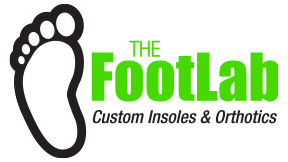
How Custom Orthotics Can Relieve Foot Pain Caused by Neuroma
If you’ve ever battled the sharp, relentless discomfort of a neuroma, you know it’s more than just a minor annoyance—it can disrupt your daily life. The good news? Relief is well within your reach! Custom orthotics can be game-changers designed specifically to transform your foot health and mend your neuroma experience. Imagine slipping into a pair of shoes that not only support your arches but also alleviate pressure points, allowing you to move freely and comfortably throughout your day. With custom orthotics from The FootLab, you can reclaim the joy of walking and stand tall again, free from pain.
Understanding Neuroma: Causes and Symptoms

Neuroma, often referred to as Morton’s neuroma, it’s a painful condition that affects the ball of your foot, most commonly the area between your third and fourth toes. It occurs when the tissue around one of the nerves leading to your toes thickens, causing pain and discomfort. This thickening is often a result of irritation, compression, or repetitive stress, which inflames the nerve. The exact cause of neuroma isn’t always clear, but it is frequently associated with wearing tight or high-heeled shoes, engaging in high-impact sports, or having other foot deformities such as bunions or flat feet.
The symptoms of neuroma can vary widely among individuals. Commonly, people experience a sensation of a pebble in their shoe or a fold in their sock that doesn’t exist. The pain can range from a mild discomfort to severe, sharp, burning pain that radiates from the ball of the foot into the toes. Some individuals may also experience tingling or numbness in their toes. These symptoms often worsen with activity or when wearing tight shoes and may improve with rest or when removing the shoes. However, without proper treatment, the symptoms can become progressively worse.
The Impact of Foot Pain on Daily Life
Simple activities such as walking, standing, or even sitting with your feet on the ground can become painful and exhausting. This constant pain can lead to altered gait patterns as you subconsciously adjust your walking style to avoid discomfort, potentially causing additional issues in your knees, hips, and lower back due to the misalignment.
The impact of foot pain extends into your professional life as well. On your feet workers, or people with jobs that require prolonged periods of standing or walking can become unbearable, leading to decreased productivity and increased absenteeism. Even office-based jobs can be challenging if the pain prevents you from sitting comfortably for extended periods. Addressing foot pain through effective treatments like custom orthotics can help mitigate these impacts, allowing you to regain control over your daily activities and improve your overall well-being.
What Are Custom Orthotics?
Custom orthotics are specially fabricated shoe inserts tailored to fit the unique contours of your feet. Unlike over-the-counter insoles, which are mass-produced and offer a one-size-fits-all solution, The FootLab custom orthotics are molded from a direct impression of your feet. This personalized approach ensures that the orthotics address your specific foot structure and biomechanical needs, providing optimal support and comfort.
The process of creating custom orthotics begins with a thorough examination by a FootLab certified pedorthist. This examination includes assessing your foot structure, gait, and any existing conditions such as neuroma. Custom orthotics work for neuroma relief by addressing the underlying biomechanical issues that contribute to the condition. One of the primary functions of these orthotics is to redistribute pressure away from the painful area, reducing the irritation and compression of the affected nerve. By alleviating pressure on the ball of the foot, custom orthotics can significantly reduce the pain and discomfort associated with neuroma.
These orthotics also provide arch support, which can help improve the alignment of your feet and reduce the strain on the nerves. Proper arch support ensures that your feet are in a more natural position, which can prevent the excessive pronation or supination that often exacerbates neuroma symptoms. Additionally, custom orthotics can include metatarsal pads or bars that provide extra cushioning and support to the ball of the foot, further relieving pressure on the affected area.
Benefits of FootLab Custom Orthotics
- Superior comfort and effectiveness compared to generic insoles
- Improvements in foot pain and overall mobility, allowing you to engage in daily activities with greater ease and confidence
- Prevent the progression of foot conditions and the development of new issues
- Improved alignment, posture and support to reduce the risk of injuries such as plantar fasciitis, tendonitis, and stress fractures and more
- Fabricated in just one hour, you leave your appointment with your orthotics
Bring your shoes with for your Custom Orthotics appointment
It’s also important to wear your custom orthotics in appropriate footwear. While orthotics can be designed to fit a variety of shoe types, wearing them in supportive, well-fitting shoes will maximize their effectiveness. Bring your shoes in for your appointment, your certified pedorthist can provide recommendations on the best types of shoes to wear with your orthotics, such as athletic shoes with good arch support or dress shoes with removable insoles that can accommodate the orthotics.
Schedule your FREE foot evaluation
Relieving foot pain, particularly from conditions like neuroma, is essential for maintaining an active and fulfilling lifestyle. Custom orthotics offer a personalized and highly effective solution for managing neuroma symptoms, providing the support, cushioning, and alignment correction needed to alleviate pain and improve foot function. At your appointment, you’ll learn and see how your feet, knees, hips and back will benefit from custom molded shoe inserts. Use our online scheduler, or call 651-429-3333 to ask questions or schedule your appointment.
